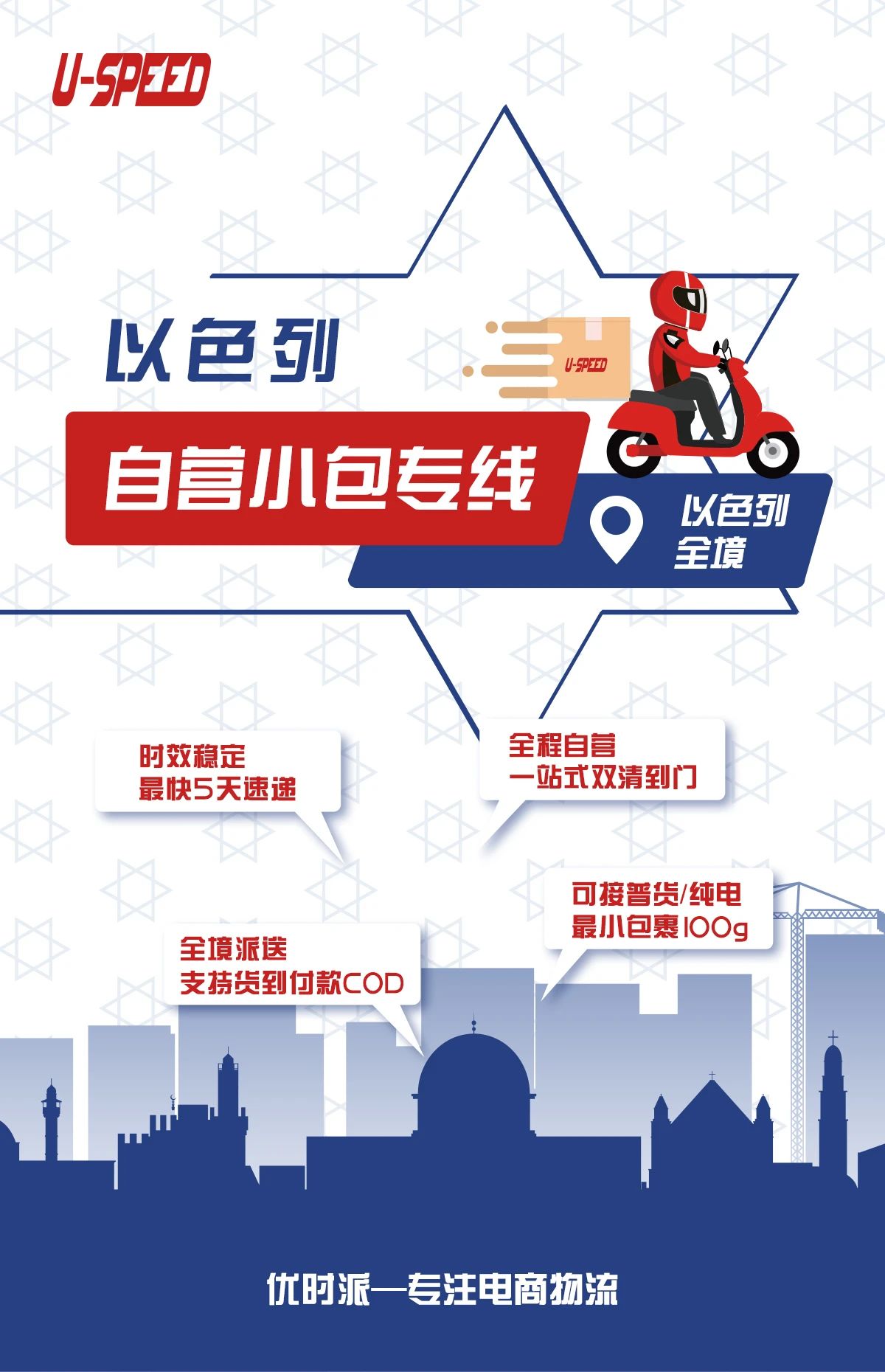-
Tel:+86 18948187408


To export products to Israel, merchants need to understand and comply with the country's relevant policies and regulations, including time arrangements, tax regulations, export and import licenses, etc. The following are the latest policy highlights and precautions:
1. Import licenses and management measures
Israel implements an import license system for some commodities, mainly involving agricultural products, food, medical products, etc. Importers applying for import licenses must be Israeli citizens or companies registered in Israel. When applying, you need to submit an import license application form to the Ministry of Industry and Trade, as well as a copy of the order, invoice, or quotation from a foreign supplier. Usually, the relevant department will process the application within 14 days after receiving the application.
2. Import tariffs and tax regulations
Israel is a member of the World Customs Organization and uses the internationally accepted "Commodity Description and Coding System" to classify goods. Import tariffs are set by the Tariff and Value Added Tax Department of the Ministry of Finance, and specific customs clearance business is the responsibility of the customs at each entry port. The tax amount is generally calculated as a percentage of the duty-paid price, and a few goods use a fixed tax amount or a combination of the two.
In addition, some imported goods are subject to purchase tax and value-added tax. For most imported goods, the buyer should pay a 15.5% value-added tax. Importers who meet certain conditions may enjoy purchase tax exemption.
3. Preparation of customs clearance documents
The owner of imported goods must declare the goods immediately after arrival or within the period allowed by the customs. The following documents are required for customs clearance:
Delivery instruction, airway bill of lading or mailing bill of lading
Freight list and handling fee list
Insurance terms
Invoice
Packing list
Market situation table, catalog, price list or other documents used to confirm and classify the goods
Correspondence between the supplier (manufacturer) and the importer on the terms of the contract
Certificates and documents related to import licensing regulations and quality standards
General certificate or certificate of origin
Direct bill of lading
Certificate of permission to postpone payment of all or part of customs duties and other taxes
Import license
In addition, quality certificates or other certificates issued by specific institutions (such as standards associations, the Ministry of Industry and Trade, the Ministry of Defense, the Ministry of Communications, etc.) must be originals unless the customs official agrees to accept photocopies. Documents in non-Hebrew should be in English as much as possible.
4. Cooperation with Israeli importers
Establish a trusting relationship: The Israeli market is highly dependent on importers, and the import of many commodities is dominated by local importers. It is crucial to choose the right importer to cooperate with.
Contract and payment terms: Settlements are usually made in US dollars, but the payment method (such as letter of credit or bank wire transfer) must be clearly agreed upon. Pay attention to whether the terms include the sharing of tariffs, value-added tax and other expenses.
5. Product certification that meets Israeli standards
Israel has strict certification requirements for imported goods, especially the following categories of products:
Electronic products: must comply with Israeli electrical safety standards and relevant test reports must be provided.
Food and beverages: must comply with the food safety standards of the Israeli Ministry of Health and obtain halal certification (Kosher) to cover a wider consumer group.
Medicines and cosmetics: must obtain an import license from the Israeli Ministry of Health, accompanied by detailed product descriptions.
6. Tariff reductions and trade agreements
Free Trade Agreement (FTA): Israel has signed free trade agreements with many countries, including China, the European Union and the United States. According to the content of the agreement, goods that meet the rules of origin can enjoy tariff reductions.
Certificate of Origin: When exporting to Israel, be sure to prepare a standardized certificate of origin (such as the Asia-Pacific Trade Agreement Certificate of Origin) in order to enjoy relevant preferential policies.
7. Logistics and timeliness arrangements
Ports and transportation: Israel's major ports include Haifa Port and Ashdod Port. Transportation peaks (such as holidays) may be delayed, so logistics must be planned in advance.
Air transportation options: For time-sensitive goods (such as high-tech equipment or seasonal goods), it is recommended to give priority to air transportation.
8. Risk prevention and response measures
Currency risk: The exchange rate of the Israeli currency, the shekel (NIS), may fluctuate greatly, and exchange rate risk hedging is required.
Political and legal risks: Israel's political situation is relatively stable, but geopolitics may have an impact on logistics and market demand, and dynamic adjustment strategies must be paid attention to in a timely manner.
Importance of halal certification: With the increase in demand for halal markets in Israel and its surrounding areas, halal certification (Kosher) for food, beverages, cosmetics and other products will greatly enhance market competitiveness.
9. Other matters needing attention
Israel implements customs inspection on imported goods, and some goods must comply with Israel's safety, environmental protection, and marking standards. Most imported goods are inspected by the Israel Standards Association, while medicines and agricultural products are inspected by the Ministry of Health and the Ministry of Agriculture respectively. In addition, importers should pay attention to the requirements of the Consumer Protection Law on product labels. Unless otherwise approved, the text on domestic and imported product labels shall be in Hebrew.
U-SPEED Israel Ocean Freight

Our Israel Ocean Freight Headway is safe, efficient and has a good price. It supports double clearance to door DDU. We have many years of international shipping experience and professionally help domestic products go overseas!
Strong strength: first-hand warehouse, weekly loading, direct voyage to the port, 35 days after the ship sails, general goods minimum 50KG shipment, pure electric minimum 2CBM shipment!
Diverse services: support door-to-door pickup across the country, and the collection warehouse covers major port cities. It can provide one-stop services such as SII certification agent, customs declaration agent, packaging and labeling.
Worry-free transportation: general goods, electric and pure electric goods can be accepted, including luggage and leather goods, mobile phone accessories, hardware accessories, lamps and furniture, clothing, shoes and hats and other daily necessities, personal belongings, and trade goods.
U-speed Israel self-operated overseas warehouse
At the same time, U-speed provides efficient and fast one-stop service for cross-border e-commerce sellers.
As the only partner of AliExpress merchant warehouse and Cainiao Israel official warehouse, our self-operated overseas warehouse in Israel has complete intelligent logistics equipment and strict operating procedures. We can deliver in Israel as soon as 3 days!
We independently developed the WMS system, and various data such as categories, inventory, and distribution can be visualized and controlled, which professionally helps sales forecasting and reduces inventory risks.